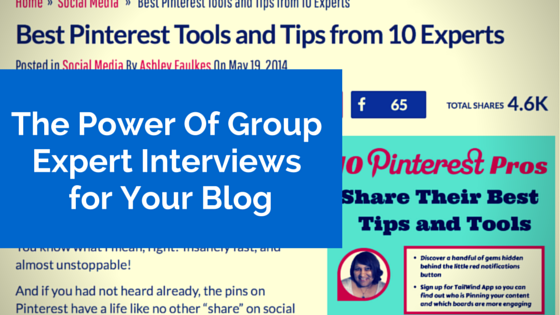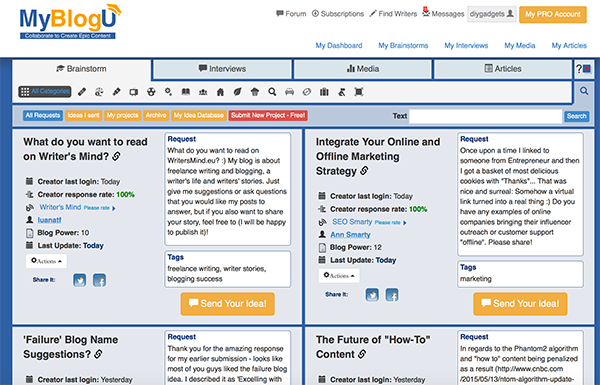I have a special treat this week! I’m happy to share an interview I conducted with Debra Ruh, whose new book, Inclusion Branding, will be released this week. Her latest book is about how brands can learn to engage with the Community of Persons with Disabilities and other minorities to create solid ROI and Positive Social Impact.
The book shows what it means and why it matters to develop inclusive marketing and branding, as well as how to humanize brands and manage community expectations. The book also touches on how to manage the risks associated and how to understand the communities. I was able to read an advance copy of the book, and I found it a huge eye-opener.
Enjoy our Q&A below.
Q: You dedicated the book to your mother. How did your mother inspire this mission and work?
Debra: Great question Rosemary. My mother passed away suddenly the last day of 2017. My mother was a strong influence in my life. She was a hard worker, she had a great work ethic and was dedicated to her family. However, my mother also struggled with a mental illness most of her life. She was diagnosed with Borderline Personality Disorder later in life and probably also suffered from Bipolar. My mother moved to Virginia from her beloved Florida after my father passed away and she never got over my father’s passing. My mother taught me a lot about resilience and taking care of yourself. She also struggled with negativity and often saw the glass as half full.
When my daughter Sara, named after my mother was diagnosed with Down syndrome, my mother was scared and could often only see the scary aspect of a life with Down syndrome. She also taught me sometimes by being a challenging role model to decide how I was going to live my life and contribute to society. She also had diabetes and that negatively impacted her mental health. Diabetes is an ugly disease in my family and has taken other members like my grandfather. My grandfather lost both of his legs due to diabetes. Early on in life, I was determined to see life from a different perspective. My mother and I were linked in a way that is hard to explain. Of course, she was my mother but she challenged me to make a difference. I am still walking the grief process after losing my mother but I know she is in a better place. I also believe my mother is still a big part of my life and the lessons she taught me, will continue to be with me for the rest of my life.
Q: What is the biggest misconception about disability inclusion efforts within the corporate world?
Debra: That persons with disabilities are not qualified to do the jobs available in the workforce. Also, that the disability is a liability instead of a strength. I interviewed a successful entrepreneur, John Little, Successful Resume (www.successfulresume.com.au) from Australia on my Show (Human Potential at Work) the other day. John said “I succeeded with these businesses because of my disability not despite my disability”. Corporate brands are starting to understand the value that persons with disabilities bring to the workforce.
My last book was called, Tapping into Hidden Human Capital: How Leading Global Companies Improve their Bottom Line by Employing Persons with Disabilities. That book explores this topic from the eyes of over 30 multi-national corporations. These corporate brands understand that hiring and retaining persons with disabilities is good for your bottom-line. We are your employees, your customers, your investors, your vendors, and partners. According to World Health Organization (WHO) 1 in 7 people in the world has a disability. According to National Organization of Disability (NOD) in the United States, 1 in 5 people identify as having a disability and that is 1 in 3 families in the US.
So many corporations still have a misconception that it is difficult to include persons with disabilities. I am hoping my book ‘Inclusion Branding’ will continue to break down some of these barriers and misconceptions. It is time for corporate brands to understand that persons with disabilities as a population, is a powerful and loyal market segment, with powerful buying attributes, and strong work ethic. Persons with disabilities also cover all other diversity segments including, age, gender, ethnicities, geographic areas, genders, and religious preferences. Many persons with disabilities are innovative problem solvers because the world is often not accessible. These talents add great value to the workforce.
Q: Do you think proponents of disability inclusion can tap into the desire of Millennials to deal with “socially responsible” brands?
Debra: Yes, this is an excellent point. Millennials expect corporate brands to be socially responsible according to many studies, including a few cited in my book ‘Inclusion Branding’. Other generations also expect brands to be socially responsible. Brands want consumers to do business with them because they believe in their products and services. Consumers want to trust the brands to which they show loyalty and believe that these brands are making a difference in their communities. Often the communities that brands are trying to attract do not know which brands to trust.
There are also growing expectations that brands have diverse workforces that include persons with disabilities. The workforce is changing, and so are employee values, thus, keeping employees satisfied has never been more important. Workers expect their employers to align business goals with positive social impact as part of their Corporate Social Responsibility (CSR), which should align with an impact agenda dedicated to the mission of the brand. The Nielsen June 2014 report “Doing Well by Doing Good”1 showed that 67% of millennials want to work for a socially responsible brand.
Q: How can a solo entrepreneur take steps to support disability inclusion (since they may not be doing a lot of hiring)?
Debra: Solo entrepreneurs can support the community of persons with disabilities by selecting us as vendors and partners. The USBLN has created a certification for businesses owned by persons with disabilities called The Disability Supplier Diversity Program (DSDP). DSDP is the leading third-party certifier of disability-owned business enterprises (DOBEs).
You can also welcome us as customers by assuring your business, your services and products are fully accessible. The good news about accessibility is that those efforts make your location, products and services accessible to everyone. Remember, as we age, over the age of 65, 46% of us will acquire disabilities. With 72 million baby boomers in the US alone, controlling 60% of the wealth –this is a market that no business including solo entrepreneurs should ignore.
Q: What are some ways a business can shift from seeing disability inclusion as a legal requirement, or charity, to seeing it as an ROI generator?
Debra: Understand that persons with disabilities are people first and that we are everywhere. We are your parents, your children, your friends, neighbors and maybe you are a person with disabilities (PwD). Take the time to understand why including PwD in your workforce, making your locations, products and services accessible and telling us that story, via advertisement, chatting about it via social media or on your website, will help drive in business and qualified applicants. Too often this community is viewed from a charitable or corporate social responsibility (CSR) standpoint as noted in the introduction of ‘Inclusion Branding’ by my chairman, Richard Schatzberg.
Corporate brands should work hard to create positive brand recognition. Brands who include persons with disabilities among their employees create an excellent way to enhance brand image. Persons with disabilities should be viewed as a viable pool of potential employees as well as an emerging market that, together with their friends, families, and caregivers, have trillions of dollars in disposable income. Stories of successful disability inclusion within a company should be included in marketing efforts, shareholder reports, and corporate social responsibility reports.
Thank you so much, Debra, for this insightful discussion!
About Debra Ruh:
Debra Ruh is a recognized market influencer and advocate for the rights of persons with disabilities, a leader, a published author, a successful entrepreneur and a fantastic mother. She has created a path to empowerment and success for those with disabilities. Debra is the co-founder of #AXSchat, the second largest Tweet Chat in the world and her podcast Human Potential at Work with weekly listeners in more than 84 countries. http://www.ruhglobal.com/our-story/
Debra is a global leader and has worked with countries, UN agencies, national and multi-national firms all over the world helping then create programs, strategies, and processes that fully include persons with disabilities. She is a contributor to the Huffington Post, and her catalyst for starting RGC was her daughter Sara born with Down syndrome. Her work has been featured on many news outlets, and she has been granted many awards. http://www.ruhglobal.com/media/

